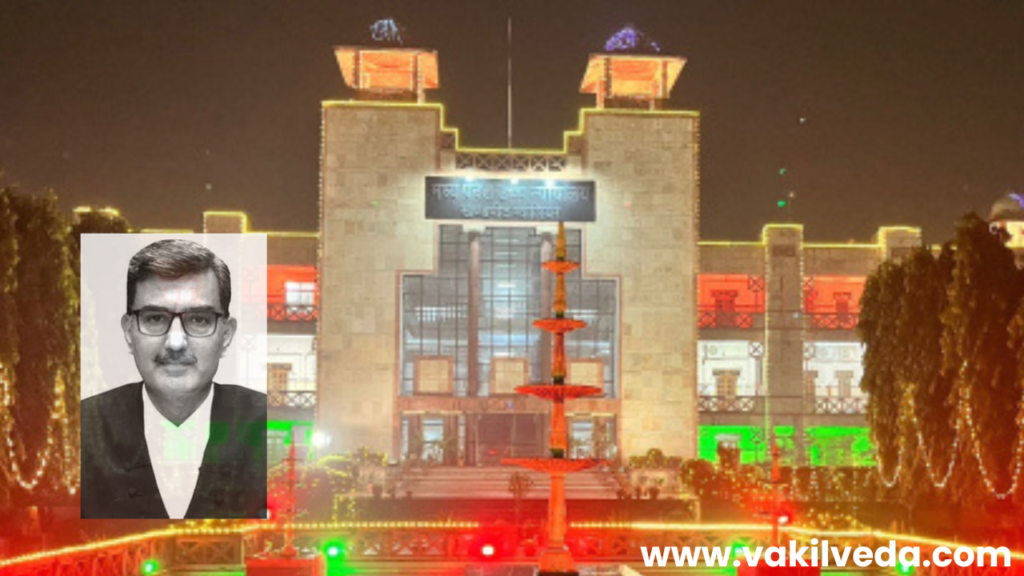
Limitation Act and DRT-
A bench of Madhya Pradesh High Court led by Hon’ble J. Shree Sheel Nagu and J. Shree Vivek Jain has held that the benefits of the provisions from Section 4 to Section 24 (both inclusive) of the Limitation Act, 1963 are available to the causes raised under Section 17(1) of the Securitization and Reconstruction of Financial Assets and Enforcement of Security Interest Act, 2002 (SARFAESI) before the Debt Recovery Tribunal (DRT).
Main Issue- Whether the benefit of provisions of the Limitation Act, 1963 in particular Section 5, are available in respect of an application preferred under Section 17 (1) of the SARFAESI Act, 2002 or not?
Facts of the Case-
The petitioner on 16.09.2022 filed an application under Section 17 (1) of the SARFAESI Act, 2002. Thereby assailing demand notice, possession notice and auction notice issued in respect of the secured assets in question. In addition to the aforementioned applications, the petitioner had also moved an application under Section 5 of the Limitation Act, 1963 seeking condonation of delay in preferring the same. The delay which was sought to be condoned was 46 days. The DRT has rejected the Special Appeal for the reason of being time-barred. The DRT held that an application under Sectio 17 is in the nature of the suit and, therefore, the provisions of Section 5 of the Limitation Act, 1963 are inapplicable. Thus, by relying upon Apex Court’s decision in the case of Bank of Baroda & Another Vs. M/s Parasaadilal Tursiram Sheetgrah Pvt. Ltd. and Ors. (C.A. No.5240/2022) judgment dated 11.08.2022, DRT declined to interfere.
Also Read- 1. Who is an Advocate according to Law?
2. What is the Uniform Civil Code (UCC)?
3. What is Law? Nature, Scope, Kinds, Function and Purpose
Court’s view on Limitation Act-
The M.P. High Court has stated that the Apex Court in the Bank of Baroda’s case did not decide the stated question. Therefore, the issue of applicability of provisions of the Limitation Act, 1963 to an application under Section 17 of the SARFAESI Act, 2002 was not under consideration by the Apex Court. The court has also said that reliance placed by DRT for dismissing the special appeal as barred by limitation by relying upon the said decision in Bank of Baroda’s case is misplaced.
Section 17 of the SARFAESI Act, 2002 does not confer the DRT with discretion to extend the period of limitation of 45 days. Also, Section 17 or any other provision of the SARFAESI Act, 2002 does not expressly exclude the operation of beneficial provisions under the Limitation Act, 1963. Section 29(2) of the Limitation Act, 1963 inter alia stipulates that if the special law does not expressly exclude the application of Sections 4 to 24 of the Limitation Act, 1963 then these provisions of the Limitation Act, 1963 shall apply for all causes raised under the Special Law.
The special law i.e. the SARFAESI Act, 2002 does not expressly exclude the application of the provisions from Sections 4 to 24 of the Limitation Act, 1963 (including Section 5) and therefore the benefit under Section 5 of the Limitation Act, 1963 shall be available to the cause of action raised in an application under Section 17 of the SARFAESI Act, 2002. Therefore, DRT has been directed to consider and decide the application for condonation of delay filed by the petitioner along with the Special Appeal.



Pingback: Allahabad HC on Gyanvapi dispute and Puja in Vyasji Ka Tehkhana -